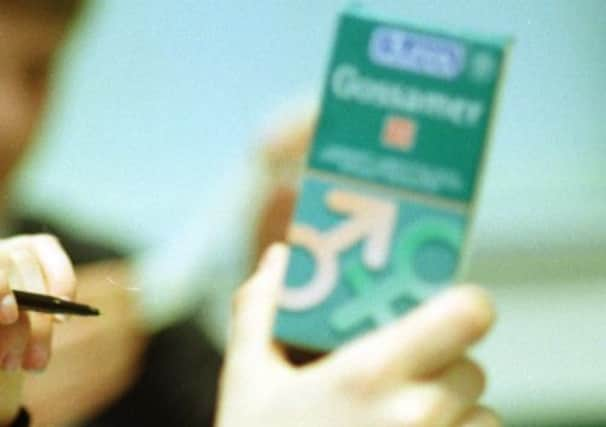Leaders: Sex education fails the test


This country is undergoing a sea-change in the way its criminal justice institutions – police, prosecutors and courts – deal with rape and serious sexual assault. These changes are most welcome, and overdue. But they can only address the symptoms of a society where some alarmingly atavistic attitudes to sexual consent hold sway. To now discover that such attitudes are commonplace in every Scottish playground should set alarm bells ringing for Scotland’s educators and politicians.
A detailed breakdown of the figures from this poll was not available to our reporters, but it will be important for policymakers to know the gender split on this question. However, it is hard to envisage any analysis that would provide any reassurance: either a proportion of boys far higher than one-in-four is thinking along these lines, or some Scottish girls have so little self-esteem and self-confidence that they too buy into the pernicious belief that “no does not always mean no”.
Advertisement
Hide AdAdvertisement
Hide AdThe teenagers’ answers on consent are not the only worrying aspect of this poll. Also of concern is the finding that one in five teenagers in this age group is unaware of the role condoms play in preventing sexually transmitted infections. This raises two questions. One, what kind of sex education leaves post-pubescent teenagers without that kind of knowledge? And two, are children in Catholic schools – who for doctrinal reasons may not receive as much information about contraception as children at non-denominational schools – getting the necessary information about the efficacy of condoms for preventing STIs? The poll’s finding on the ignorance of teenagers about the dangers of sharing needles raises its own, separate issues about the degree to which our schools are preparing our children for the real world beyond the school gate.
These findings are a damning indictment of the way we teach our children about sex. The campaigning group Zero Tolerance reports that its own research, to be published in the next few weeks, reveals a deep frustration among young people that the way they are taught about sex fails to get much further past the “birds and the bees” mechanics of procreation. In the absence of a more rounded and practical insight into sexual behaviour, our young people have to turn instead to the lessons provided by their friends – which may or may not be accurate or edifying – and a picture of sexual norms as portrayed in popular culture, which brings its own lurid dangers. It is clear from this study that what our teenagers need is not just a biology lesson, but a life lesson.
The teaching of sex education is, of course, fraught with difficulties. Different religious denominations have differing views on what is appropriate. There are questions about whether boys should be taught separately from girls, or together. There is the very practical problem that not all teachers are comfortable with the subject. And some parents are vehemently opposed to their children being taught about sex in a way that does not reflect the values that hold sway at home.
All of these factors need to be given their due weight. But at the same time the education system’s primary responsibility is to the children themselves. It is their interests that should be paramount and, as this survey so amply demonstrates, they are currently ill-served by what passes as sex education in this country.
Keep Scotland first
The First Minister of Wales, Labour’s Carwyn Jones, is perfectly entitled to make an argument for the scrapping of the Barnett Formula, which helps distribute Treasury cash to Northern Ireland, Scotland and Wales. There has long been a feeling among the Welsh that the formula favoured the Scots at the expense of their celtic cousins within Offa’s Dyke. Jones’ argument for a new needs-based
formula is a legitimate one, and we should expect it to be
echoed in some English regions that currently feel they get a raw deal in Britain’s public spending divvy-up.
But this should not necessarily mean that a new system of funding for Wales – or for that matter for Cumbria or Yorkshire – needs to be the same system for funding Scotland within the UK. We are heading towards a United Kingdom with a patchwork of different forms of self-government – from city states with mayors, to regional assemblies, to sovereign national parliaments such as Holyrood. And indeed with some parts of England quite content with direct rule from Westminster. Any attempt to impose a one-size-fits-all solution to devolution within the UK, or the means of funding different areas, would be a disaster. The way ahead for Scotland within the UK must be determined in Scotland, in the Scottish interest, and not to satisfy some Westminster need for tidiness or conformity.